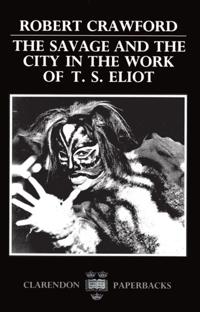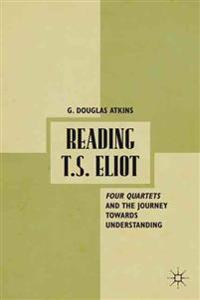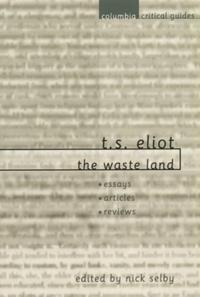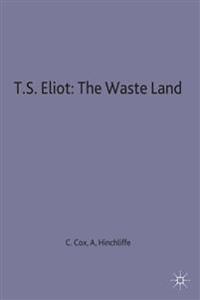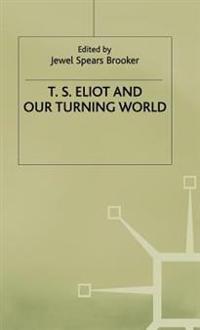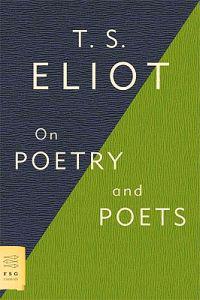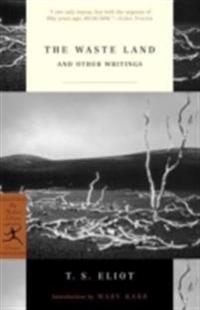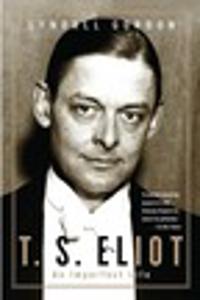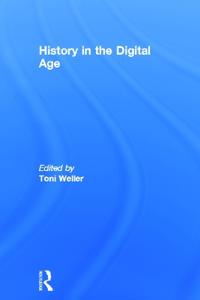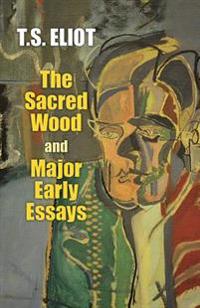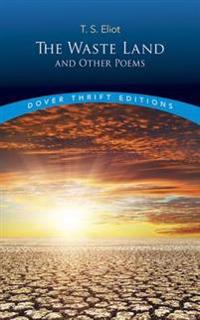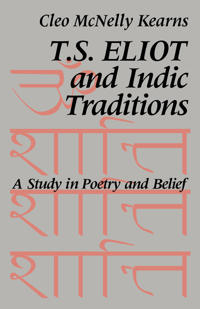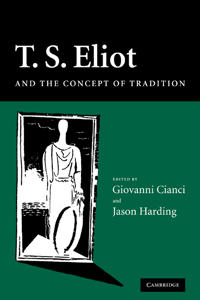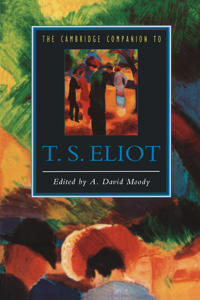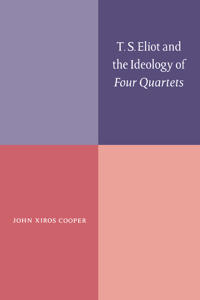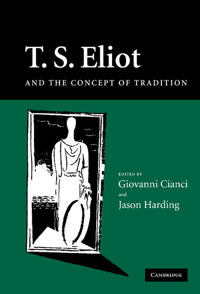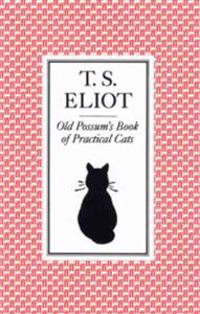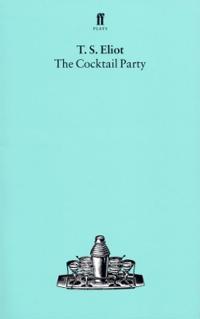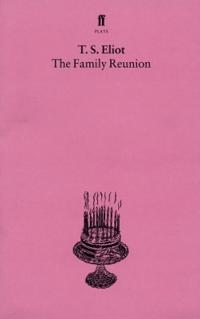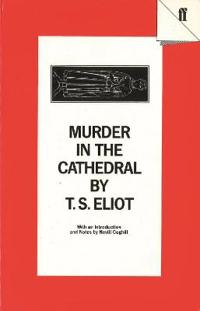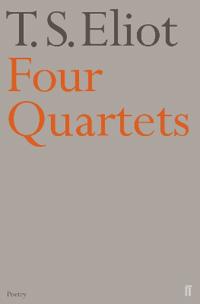The Savage and the City in the Work of T.S. Eliot (Häftad)
avRobert Crawford
ISBN: 9780198122517 - UTGIVEN: 1990-11The twin concerns of primitive and metropolitan life nourished T.S. Eliot's imagination through his childhood and student years and developed to mould and underpin his writing. Ranging from Dr Sweany of St Louis and Eliot's intense interest in anthropology to his interest in Victorian urban writing [...]
T. S. Eliot (Pocket)
avCraig Raine
ISBN: 9780199774173 - UTGIVEN: 2011-11-24A compact biography and guide to one of the greatest English-language poets, T. S. Eliot sheds new light on the themes and events that shaped the life and work of the Nobel laureate.[...]
Reading T.S. Eliot (Inbunden)
avChad W. Hall
ISBN: 9780230112483 - UTGIVEN: 201201This book offers an exciting new approach to T. S. Eliot's Four Quartets through both a close reading and a comparison to Eliot's other works, notably the poems "The Waste Land," "The Hollow Men," and "Ash-Wednesday." G. Douglas Atkins reveals that in Four Quartets, incarnation is the universal, tim[...]
T. S. Eliot -The "Waste Land" (Häftad)
ISBN: 9780231124256 - UTGIVEN: 2001-08"The Waste Land" (1922) is widely recognized as a central text of modernism and is often described as the most important poem of the twentieth century.This guide begins with early reviews and discussions from the 1920s and '30s, considered alongside Eliot's own critical essays, showing how he set th[...]
T.S.Eliot and Our Turning World (Inbunden)
ISBN: 9780333715673 - UTGIVEN: 200101In "T.S. Eliot and Our Turning World", 15 scholars from the United States, Canada, Europe, and Japan examine Eliot's work in the context of his personal history and that of his century. Using both unpublished and newly released primary materials, they analyze and contextualize his poetry in relation[...]
On Poetry and Poets (Häftad)
avT. S. Eliot
ISBN: 9780374531973 - UTGIVEN: 2009-07T. S. Eliot was not only one of the greatest poets of the twentieth century--he was also one of the most acute writers on his craft. In "On Poetry and Poets," which was first published in 1957, Eliot explores the different forms and purposes of poetry in essays such as "The Three Voices of Poetry," [...]
T. S. Eliot: An Imperfect Life (Häftad)
avLyndall Gordon
ISBN: 9780393320930 - UTGIVEN: 2000-11Lyndall Gordon's biographical work on T. S. Eliot has won many dramatic accolades. In this "nuanced, discerning account of a life famously flawed in its search for perfection" (The New Yorker), Gordon captures Eliot's "complex spiritual and artistic history . . . with tact, diligence, and subtlety" [...]
History in the Digital Age (Inbunden)
avT. S. Eliot
ISBN: 9780415666961 - UTGIVEN: 201209The digital age is affecting all aspects of historical study, but much of the existing literature about history in the digital age can be alienating to the traditional historian who does not necessarily value or wish to embrace digital resources. History in the Digital Age takes a more conceptual lo[...]
The Sacred Wood and Major Early Essays (Häftad)
avT. S. Eliot
ISBN: 9780486299365 - UTGIVEN: 199707With the 1920 publication of his first collection of essays, "The Sacred Wood, " Eliot established himself as an authoritative and influential literary critic. These insightful meditations on poetry, drama, and literary criticism include observations on the works of Dante, Shakespeare, Blake, and ot[...]
Waste Land, Prufrock and Other Poems (Häftad)
avT. S. Eliot, Dover Thrift Editions
ISBN: 9780486400617 - UTGIVEN: 199801A superb collection of 25 works features the poet's masterpiece, "The Waste Land"; the complete Prufrock ("The Love Song of J. Alfred Prufrock," "Portrait of a Lady," "Rhapsody on a Windy Night," "Mr. Apollinax," "Morning at the Window," and others); and the complete "Poems" ("Gerontion," "The Hippo[...]
T. S. Eliot and Indic Traditions (Pocket)
avCleo McNelly Kearns
ISBN: 9780521064552 - UTGIVEN: 2008-06T. S. Eliot's allusions to Indic philosophy in several poems - from the Sanskrit ending of The Waste Land to the 'What Krishna meant' section of Four Quartets - have puzzled and intrigued readers since the poems first appeared. In T. S. Eliot and Indic Traditions, Professor Cleo McNelly Kearns place[...]
T. S. Eliot (Häftad)
ISBN: 9780521105286 - UTGIVEN: 2009-03The centenary of Eliot's birth in 1988 provided the salutary occasion for a fresh look at his life and work and a reassessment in light of issues raised by the various critical movements - the new historicism, feminism, reader-reception theory - that have succeeded the New Criticism, loosely subsuma[...]
T.S. Eliot and the Concept of Tradition (Häftad)
ISBN: 9780521121439 - UTGIVEN: 2009-10T. S. Eliot's reformulation of the idea of literary tradition has been one of the key critical concepts of the twentieth century. In this reappraisal of tradition, an international team of scholars explores the concept from a variety of theoretical and historical perspectives, including a series of [...]
T. S. Eliot and Indic Traditions (Inbunden)
avCleo McNelly Kearns
ISBN: 9780521324397 - UTGIVEN: 1987-06T. S. Eliot?s allusions to Indic philosophy in several poems - from the Sanskrit ending of The Waste Land to the ?What Krishna meant? section of Four Quartets - have puzzled and intrigued readers since the poems first appeared. In T. S. Eliot and Indic Traditions, Professor Cleo McNelly Kearns place[...]
The Cambridge Companion to T.S. Eliot (Pocket)
avAnthony David (EDT) Moody
ISBN: 9780521421270 - UTGIVEN: 1994-11In this Companion, an international team of leading T. S. Eliot scholars contribute studies of different facets of the writer?s work to build up a carefully co-ordinated and fully rounded introduction. Five chapters give a complete account of Eliot?s poems and plays from several distinct points of v[...]
T.S. Eliot and the Ideology of Four Quartets (Inbunden)
avJohn Xiros Cooper
ISBN: 9780521496292 - UTGIVEN: 1995-12Recent criticism of Eliot has ignored the public dimension of his life and work. His poetry is often seen as the private record of an internal spiritual struggle. Professor Cooper shows how Eliot deliberately addressed a North Atlantic ?mandarinate? fearful of social disintegration during the politi[...]
The Early T. S. Eliot And Western Philosophy (Inbunden)
avRafey Habib
ISBN: 9780521624336 - UTGIVEN: 1999-06-28T.S Eliot and the Concept of Tradition (Inbunden)
avGiovanni Cianci, Jason Harding, Giovanni Cianci
ISBN: 9780521880022 - UTGIVEN: 200709T. S. Eliot's reformulation of the idea of literary tradition has been one of the key critical concepts of the twentieth century. In this reappraisal of tradition, an international team of scholars explores the concept from a variety of theoretical and historical perspectives, including a series of [...]
Cocktail Party (Häftad)
avT. S. Eliot
ISBN: 9780571051885 - UTGIVEN: 1976-03A modern verse play about the search for meaning, in which a psychiatrist is the catalyst for the action. An authentic modern masterpiece (New York Post). Eliot really does portray real-seeming characters. He cuts down his poetic effects to the minimum, and then finally rewards us with most beautifu[...]
Four Quartets (Häftad)
avT. S. Eliot
ISBN: 9780571068944 - UTGIVEN: 199801The culminating achievement of Eliot's poetic career. The four parts: "Burnt Norton","East Coker", "The Dry Salvages" and "Little Gidding" present a rigorous meditation upon those spiritual, philosophical and personal themes that preoccupied the author.[...]

